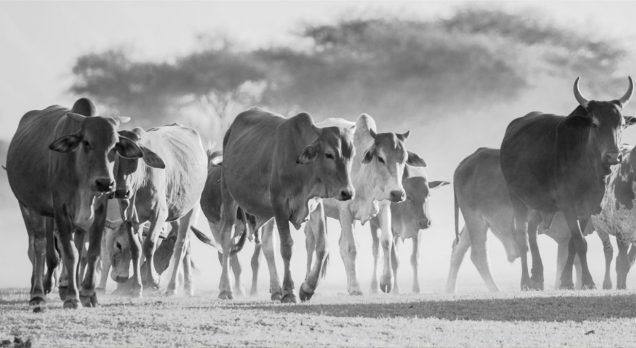With an influence from a variety of cultures, the food found in East Africa can be an exciting part of the journey.


The foods of East Africa are largely influenced and reflective of the area’s long history that details conquest and occupation by multiple nations including the Portuguese, British and Arabs over the previous centuries. This rich history, paired with the Swahili coastal area that runs from Southern Somalia to Northern Mozambique, which, as the name suggests, has proximity to the ocean, reflects a cultural cuisine of fish, seafood, tropical fruits, and many spices, which are mixed together to create an eclectic mix of traditional dishes that are now known and loved the world over, and many of which guests of a safari in these areas will be served on their upcoming safari trip. Here’s what members of a safari game drive expedition can expect to be eating when it comes to their upcoming Kenyan adventure.
What does Swahili coastal cuisine consist of?
As noted, Swahili coastal food largely consists of local fish and seafood, but other key ingredients noted in a number of traditional and national dishes include coconuts, chicken, goat, and a variety of spices that include cardamom, cinnamon, ginger, and cloves. Whilst meats such as the aforementioned goat and chicken are used in many meals, most meals of the Swahili culture are heavily dominated by vegetables.
Swahili cuisine is of course most prevalent in Kenya; however, this cuisine is enjoyed all over Africa, and the world, with some of the most world-renowned and more recognisable dishes from this culture being Pilau, Chapati, Coconut Rice and Bhajia.

What is Ugali?
Ugali, also known as Pap, Mieliepap, Ngima and Phutu – to note just a few of the other names that this traditional dish goes by, is a dish that is known to be made in the African Great Lakes region, as well as across areas of Southern Africa. The dish is characterised as a thick, dough-like consistency, which is made from maize meal, millet, or sorghum flour, as well as salt and hot water.
Often enjoyed as an accompaniment to meals such as soups, stews, and savoury curries, Ugali is one of the most well-known African dishes across the globe and is a hugely filling dish that is easy to prepare and a staple of African cuisine

What food can guests expect to eat on Safari?
It’s no surprise that one of the key things that guests look forward to on any holiday, not just a safari, is the food options, so it’s important to reassure your guests that regardless of what kind of safari package they have opted for, the food available in the Swahili coastal regions is one of rich flavour, and unlike many other cuisines guests to the area would have ever experienced before. Guests can look forward to a variety of freshly prepared meals, from local fish to unique spiced dishes and everything in between.
Every aspect of a safari is magical, and the mealtimes are no different. From dinners under the stars to those enjoyed next to a roaring fire after a successful day of game drives, there are little meal-time settings that are more special than those experienced on a safari, so it’s important that the food served to the guests matches the spectacular setting.
Are dietary requirements catered for when eating Swahili dishes on safari?
When visiting new areas of the world, it’s a great time to try something new, experience traditional dishes, and discover the history upon which these dishes were curated so many years prior. Whilst for many travellers, the prospect of these new dishes and experiences is one of great excitement, for many guests with strict dietary requirements or even allergens, this aspect of a safari or trip away from home is a daunting one.
To ensure guests feel as comfortable as possible, and to assist Safari camps in maintaining a wide variety of dishes and foods that guests of all requirements can enjoy, it’s particularly important to inform the camps of these requirements at the earliest opportunity. Whilst vegetarians are easily catered for on the Swahili coast due to the prevalence of tropical fruits and vegetables in the vast dishes and foods of East Africa. For those that have other specific dietary requirements, it is best to alert your consultant at the time of booking to ensure the catering is arranged appropriately at the safari properties.

Are there any customs to be aware of when eating Swahili food?
Food is an extremely important part of Swahili culture, with the Swahili people it is customary to ensure a guest is well fed with a simple meal such as soup or curry, but this custom is one that highlights the importance of hospitality in their culture.
Whilst Swahili people generally do use cutlery to eat a variety of meals; especially when eating meals inspired by European culture and in more urban areas, it is also very common for traditional Swahili food to be eaten with a person’s hands, such as when eating Ugali and Nyama Choma, a grilled meat dish. It is also common to see Swahili people utilise a mix of both cutlery and their hands, for example when cutting up the meat into smaller, bite size pieces.
As with all aspects of traveling to new and exciting cultures that may be distinctly different to one’s own, when visiting this area of the world, it is ultimately most important to embrace the local culture and traditions, especially during the consumption of traditional dishes.




